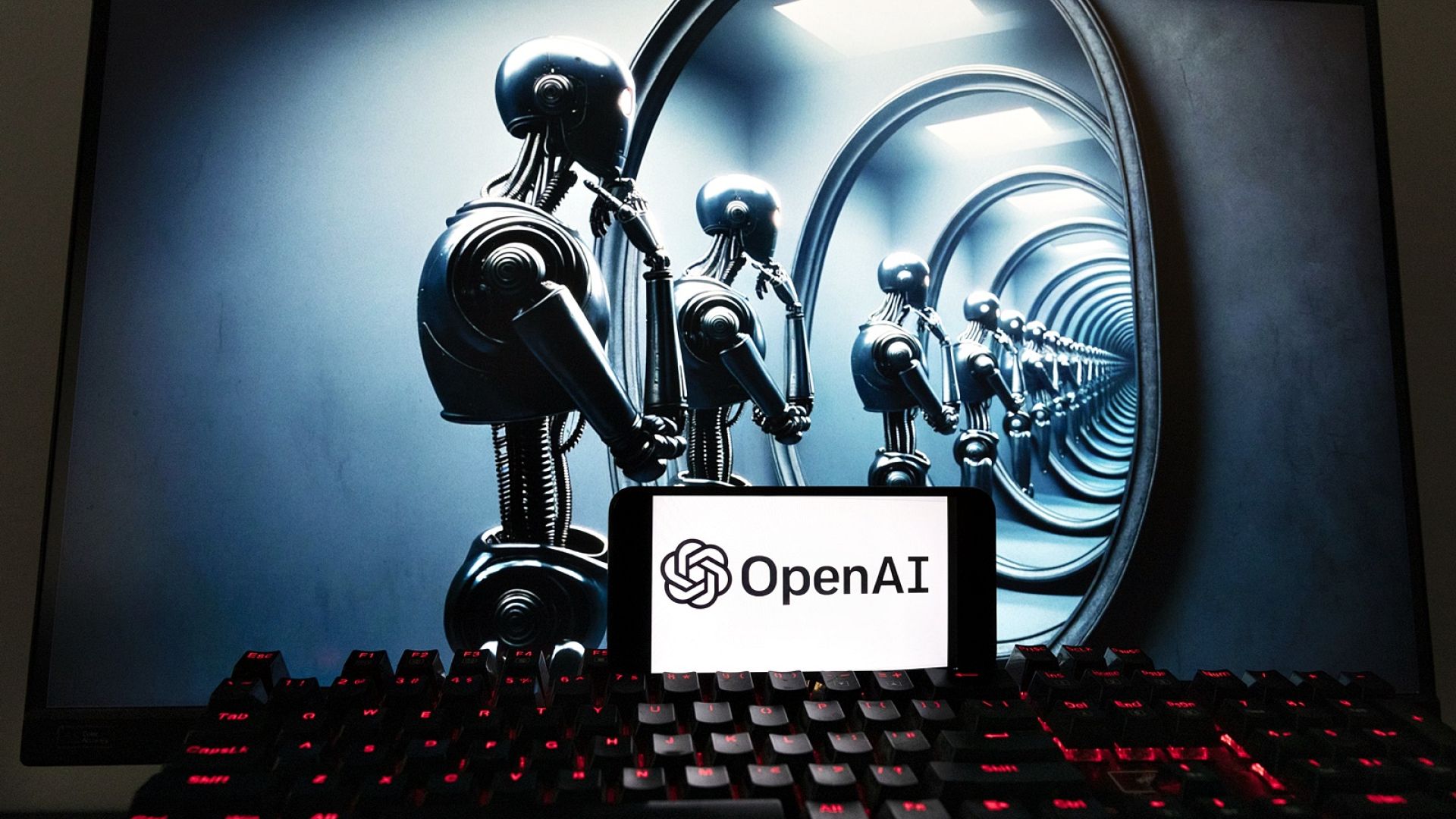OpenAI Under FTC Scrutiny: ChatGPT's Future Uncertain

Table of Contents
FTC's Concerns Regarding Data Privacy in ChatGPT
The FTC's investigation likely centers on how OpenAI collects, uses, and protects the vast amounts of user data fed into ChatGPT. This raises significant concerns about data privacy and security.
Data Collection and Usage
The scale of data collection by ChatGPT is unprecedented. The FTC is likely examining:
- The sheer volume of data collected: ChatGPT processes billions of words and interactions, potentially containing sensitive personal information.
- Transparency of data usage policies: Are users adequately informed about how their data is used? Are the privacy policies clear, concise, and easily accessible?
- Potential for misuse of personal information: What safeguards are in place to prevent the misuse of this data, both internally within OpenAI and by potential malicious actors?
- Compliance with existing data privacy regulations: Does OpenAI's handling of user data comply with regulations like the GDPR (General Data Protection Regulation) in Europe and the CCPA (California Consumer Privacy Act) in the United States? Failure to comply could lead to hefty fines and legal repercussions.
Potential for Data Breaches and Security Risks
The massive dataset processed by ChatGPT presents a significant target for cyberattacks. The FTC will likely scrutinize OpenAI's security measures, including:
- Data encryption methods: What encryption protocols are used to protect user data both in transit and at rest?
- Access control protocols: Are access controls robust enough to prevent unauthorized access to sensitive data?
- Incident response plans: Does OpenAI have a comprehensive plan in place to respond to and mitigate data breaches?
- Third-party vendor risk assessments: Has OpenAI adequately assessed the security risks posed by third-party vendors involved in its data processing infrastructure?
Algorithmic Bias and Fairness in ChatGPT
Another key area of FTC concern is the potential for algorithmic bias within ChatGPT. Bias in AI can lead to unfair or discriminatory outcomes, impacting various user groups disproportionately.
Identifying and Mitigating Bias
The FTC's investigation will likely delve into:
- The datasets used to train ChatGPT: Were the datasets used to train the model representative and inclusive, or did they reflect existing societal biases?
- Methods employed to detect and mitigate bias: What techniques did OpenAI use to identify and address potential biases in the model's output? Were these techniques effective?
- The impact of bias on different user groups: How does ChatGPT's output vary across different demographic groups? Are there any systematic biases that disadvantage certain users?
- OpenAI's efforts to promote fairness and equity in AI: What steps has OpenAI taken to ensure fairness and equity in the development and deployment of ChatGPT?
Transparency and Accountability
Transparency and accountability are crucial for building trust in AI systems. The FTC is likely to investigate:
- Explainability of ChatGPT's decision-making processes: Can OpenAI explain how ChatGPT arrives at its responses? This is essential for understanding and addressing potential biases.
- Mechanisms for user feedback and redress: Does OpenAI provide users with a mechanism to report biases or inaccuracies and seek redress?
- OpenAI's commitment to ongoing algorithm evaluation and improvement: Is OpenAI actively monitoring and improving ChatGPT's performance, including its efforts to mitigate bias?
The Broader Implications for AI Regulation
The FTC's investigation of OpenAI will have far-reaching implications for the future of AI regulation.
Setting Precedents for Future AI Development
The outcome of this investigation will set precedents for:
- Establishing standards for data privacy and security in AI systems: This could lead to stricter regulations for data handling and security practices in the AI industry.
- Developing guidelines for addressing algorithmic bias and fairness: The investigation could result in the development of clearer guidelines and best practices for mitigating bias in AI algorithms.
- Shaping the future landscape of AI development and deployment: The FTC's actions will influence the way AI systems are developed, deployed, and regulated in the future.
Impact on Innovation and Competition
Increased regulation can potentially stifle innovation, but responsible AI development is paramount. The FTC's investigation needs to find a balance between:
- The potential for regulatory burdens to hinder the growth of AI startups: Overly burdensome regulations could hinder the growth of smaller AI companies.
- The need to protect consumers and prevent the misuse of AI technologies: Regulation is essential to prevent the misuse of AI and protect consumers from harm.
- The importance of fostering a competitive and innovative AI ecosystem: Regulation should foster a healthy and competitive AI market while ensuring responsible AI development.
Conclusion
The FTC's scrutiny of OpenAI and ChatGPT underscores the urgent need for responsible AI development and robust regulation. The investigation's outcome will profoundly impact the future of not just ChatGPT, but the entire AI landscape. The focus on data privacy, algorithmic bias, and broader regulatory frameworks emphasizes the critical need for a cautious yet forward-thinking approach to AI governance. This is essential for harnessing AI's transformative potential while effectively mitigating its risks. Staying informed about the developments in the OpenAI and FTC investigation is crucial for anyone invested in the future of AI and its impact on society. Continue to follow updates on the OpenAI investigation to understand the evolving landscape of AI regulation and the long-term implications for ChatGPT and similar technologies.

Featured Posts
-
 Russia Returns To Offensive In Ukraine Following Easter Truce
Apr 22, 2025
Russia Returns To Offensive In Ukraine Following Easter Truce
Apr 22, 2025 -
 Nintendos Action Forces Ryujinx Emulator Development To Cease
Apr 22, 2025
Nintendos Action Forces Ryujinx Emulator Development To Cease
Apr 22, 2025 -
 Ray Epps Defamation Lawsuit Against Fox News January 6th Allegations
Apr 22, 2025
Ray Epps Defamation Lawsuit Against Fox News January 6th Allegations
Apr 22, 2025 -
 Selling Sunset Star Exposes La Landlord Price Gouging After Fires
Apr 22, 2025
Selling Sunset Star Exposes La Landlord Price Gouging After Fires
Apr 22, 2025 -
 Navigating The Chinese Market The Hurdles Faced By Bmw Porsche And Other Automakers
Apr 22, 2025
Navigating The Chinese Market The Hurdles Faced By Bmw Porsche And Other Automakers
Apr 22, 2025
